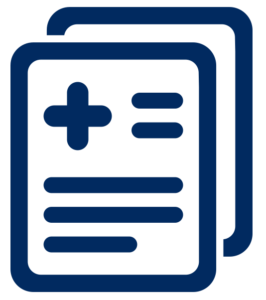Behavioral Health Group
The behavioral and physical healthcare systems in Washington will be fully integrated in 2020. As these systems come together, the demand for behavioral healthcare, mental health, and substance use disorder treatment is growing faster than services.
Upcoming stakeholder session dates to be announced soon!
Current Efforts
April 2, 2020 Stakeholder Sessions Summary – Subcommittees’ Areas of Interest
Reimbursement & Incentives
- Further refine funding model to support clinical supervision in the community context.
- Investigate funding sources to support clinical supervision.
- Consider ways to improve clinical supervisor training and quality of supervision.
Supervision Requirements
- Supports for quality supervision and protection for trainees.
- Tele-precepting.
- Variation in supervision requirements, including rationale.
- Legal liability in private practice as a barrier to supervision.
- Identify and support ideas that make supervision easier.
Competency-Based Training
- Consider using more registered apprenticeships to develop behavioral health professional workforce.
- Find ways to better prepare behavioral health students for clinical work.
- Investigate whether competency-based metrics should be explored as a viable alternative to existing supervision hour requirements.
Behavioral Health Workforce Report and Recommendations
In 2019, the Washington State Legislature directed that a workgroup, led by the Workforce Board in collaboration with the University of Washington Center for Health Workforce Studies, continue exploring select workforce barriers outlined in the 2016-2017 Behavioral Health Workforce Assessment.
 The goal is to better understand and develop recommendations on five topic areas that are barriers to growing the behavioral health workforce:
The goal is to better understand and develop recommendations on five topic areas that are barriers to growing the behavioral health workforce:
- Reimbursement and incentives for supervision of interns and trainees.
- Supervision requirements.
- Competency-based training.
- Licensing reciprocity or the feasibility of an interstate licensing compact, or both.
- Background checks, including barriers to work related to an applicant’s criminal history or substance use disorder.
Report Details
Phase I Report and Recommendations were published December 2019. This initial report provides a preliminary analysis of, and recommendations focusing on two of the barrier areas listed in the proviso: licensing reciprocity and background checks. Read the 2019 Behavioral Health Workforce Report & Recommendations.
Phase I Recommendations
Topic 1: Increase opportunities for behavioral health professionals relocating to Washington to more easily transfer out-of-state professional credentials through expanded licensing reciprocity.
1. Expand Washington’s list of states with substantial equivalency in licensing requirements to include all credentialed behavioral health professions, in addition to existing lists for psychologists and substance use disorder professionals (SUDPs).
2. Identify states with successful behavioral health profession interstate compacts, and the behavioral health occupations to which they apply.
3. Increase access of behavioral health professionals who are spouses/registered domestic partners of military personnel to obtain licensure through reciprocity upon moving to Washington.
Topic 2: Review and adapt existing background check policies and practices to increase behavioral health workforce entry and retention, while upholding patient protection and safety measures.
4. Clarify and improve consistency in background check use in clinical hiring and education training/admission decisions.
5. Evaluate existing scope of background checks for professional licensing, credentialing, and employment, to identify aspects that disproportionately impact certain types of behavioral health providers and demographic populations.
Phase II began January 2020. Early recommendations made in the Phase I report will be finalized in Phase II, and the three remaining barriers named in the proviso language will be explored in detail. A a final report is due to the Legislature by December 2020.
